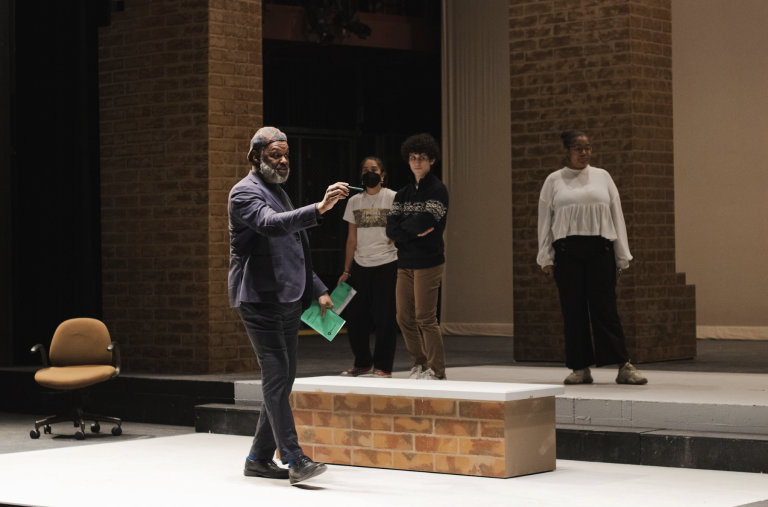Hannah Smith ’26
Executive Arts & Entertainment Editor
On Sept 25, Connecticut Public Radio sponsored a screening at Cinestudio of a new PBS special entitled “Fighting For Home: How Housing Policy Keeps Connecticut Segregated” as well as a panel with notable figures in the Connecticut Fair Housing community. There were representatives from the Tenant Union, Connecticut Humanities and Connecticut Fair Housing who were interviewees in the documentary and took part in the panel after the screening. The panel consisted of Sarah White, an attorney with Connecticut Fair Housing Center, Shanay Fulton, the Middletown Zoning Commissioner, Luke Melonakos-Harrison, the vice president of the Connecticut Tenant Union and Rep. Jason Rojas, the House Majority Leader for the Connecticut General Assembly and Trinity’s Chief of Staff, Associate Vice President for External Affairs.
“Fighting for Home” focused on economic segregation, wealth based restrictions, laws that support landlords over tenants, the importance of shelters and the nearly impossible task of finding a home for people with a low income, health problems and who are disabled or elderly, and exclusionary zoning—expensive, single family housing that is especially popular in places like West Hartford. To learn more about Connecticut’s exclusionary zoning problems, I recommend reading the National Low Income Housing Coalition article published in June 2023 titled “Report Finds Restrictive Zoning Laws in Connecticut Are Correlated with Racial and Economic Segregation.” The accessibility of housing is at an all time low right now, especially after the COVID-19 pandemic. It is especially difficult for people of color to find reasonable housing because of exclusionary zoning and redlining—the practice of denying someone a home through unfair loans and withholding insurance because of their race or ethnicity that still lingers years after it was criminalized back in 1968. According to the Connecticut Housing and Segregation Study from the Jan 2024 report, redlined neighborhoods, known as hazardous areas, are “generally at the epicenter of areas with very low percentages of White Non-Hispanic population.” These “hazardous areas” are around Hartford, New Britain, New Haven and Stamford, some of the areas with the smallest population of white non-hispanic citizens in Connecticut.
The documentary perfectly blends data and statistics with human stories to maintain the film’s credibility regarding facts and logic, while keeping audiences emotionally connected by showing how the housing crisis affects real people in their communities. It was an especially poignant film that was packed with information that was easily understandable, even by someone like me who had little to no knowledge regarding housing going into the screening.
Shanay Fulton is an incredibly moving and powerful figure in the documentary. She was introduced in the film through a video she recorded of her son reacting to finding out she had bought them a house. Fulton discussed her real life experiences that brought her to zoning and fair housing issues, and what people can do to get involved in their communities. During the panel, she mentioned the double-edged sword that is benefit cliffs; once you get a good job that pays well, you have to decide if it’s worth losing your public benefits because you’re going to lose even more money now that your paycheck is bigger and you don’t have any help with things like medical benefits, buying groceries and cash assistance. Luke Melonakos-Harrison was the face of the tenant union. He brought much of the same personality to both the film and the panel as Fulton. He told his own stories about the trauma of losing a home and displacement, as well as telling audience members how important it is to organize and grow a collective voice to speak up for renters to the government. Sarah White spoke about all that is being done to protect tenants who are trying to organize protests and unionize. She emphasized her humanity and the humanity of the Connecticut Fair Housing Center as people who want to help people. Rep. Jason Rojas sounded very much like a politician. After hearing the other three panelists speak personally and answer their questions in a heart-to-heart way with the audience, Rojas made sure to keep his distance as a professional politician who knew all the right trigger phrases that would get him people’s approval. He talked about making “change” instead of “incremental change,” but hardly explained how he would make said change in the House.
I would highly recommend this documentary, currently streaming for free on Connecticut Public’s YouTube channel.




+ There are no comments
Add yours